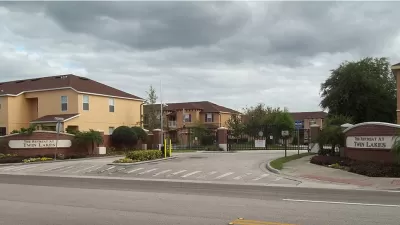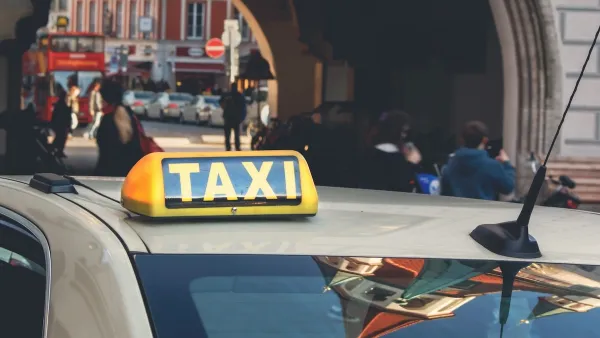Edward Blakely, co-author of “Fortress America: Gated Communities in the United States,” pens an opinion piece for The Washington Post looking at the detrimental psychology that exists in gated communities such as where Trayvon Martin died.
Blakely looks at the ways in which gated communities blur traditional lines of public and private in dangerous ways, which he extends outside the gates to "the nation's ideal of equality among its people."
Based on his extensive research across the country, and the statistics of local police departments, Blakely upends the supposed benefits of gated communities -- that they are more safe and more neighborly than other suburban communities. Aside from reduced rates of car theft, Blakely has found that, "gated communities do not have less crime than the suburbs from which they're walled off." He continues, "For many, the guards at the gate provide an artificial sense of safety. In our surveys of more than 1,000 residents of gated communities, many said they chose to live there because they traveled or worked long hours, so they had no time to meet neighbors and used the guards as their home security system."
For many of the six to nine million Americans living in single-family residences in gated suburban developments, their fortifications may induce the perception that a different set of rules apply inside the walls than outside of them. Furthermore, Blakeley argues that residents of gated communities often perceive those wall as freeing them from the communal responsibility to invest in larger public systems of education, healthcare, infrastructure, fire, and police.
"Barriers erode social stability and civic responsibility. Some make sense to protect special natural habitats, schools and similar places. But in cities and suburbs, we need to share space to make our communities stronger and safer."
FULL STORY: In gated communities, such as where Trayvon Martin died, a dangerous mind-set

Planetizen Federal Action Tracker
A weekly monitor of how Trump’s orders and actions are impacting planners and planning in America.

Chicago’s Ghost Rails
Just beneath the surface of the modern city lie the remnants of its expansive early 20th-century streetcar system.

San Antonio and Austin are Fusing Into one Massive Megaregion
The region spanning the two central Texas cities is growing fast, posing challenges for local infrastructure and water supplies.

Since Zion's Shuttles Went Electric “The Smog is Gone”
Visitors to Zion National Park can enjoy the canyon via the nation’s first fully electric park shuttle system.

Trump Distributing DOT Safety Funds at 1/10 Rate of Biden
Funds for Safe Streets and other transportation safety and equity programs are being held up by administrative reviews and conflicts with the Trump administration’s priorities.

German Cities Subsidize Taxis for Women Amid Wave of Violence
Free or low-cost taxi rides can help women navigate cities more safely, but critics say the programs don't address the root causes of violence against women.
Urban Design for Planners 1: Software Tools
This six-course series explores essential urban design concepts using open source software and equips planners with the tools they need to participate fully in the urban design process.
Planning for Universal Design
Learn the tools for implementing Universal Design in planning regulations.
planning NEXT
Appalachian Highlands Housing Partners
Mpact (founded as Rail~Volution)
City of Camden Redevelopment Agency
City of Astoria
City of Portland
City of Laramie




























